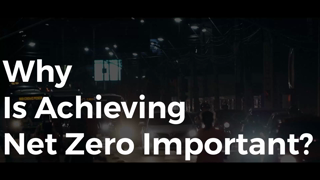Al-Sudani: The Completion Of The Budget Financing Follow-Up Platform Is A First Step In Reforming The Financial System In Iraq
Political | 06:55 - 08/23/2023 Baghdad - Mawazine News, Prime Minister Muhammad Shia Al-Sudani affirmed today, Wednesday, that the completion of the budget financing follow-up platform is a first step in reforming the financial system in Iraq.
And the media office of the Prime Minister stated, in a statement, that “Prime Minister Muhammad Shia’ al-Sudani chaired today, Wednesday, a meeting dedicated to reviewing an electronic platform, which was designed and implemented by self-efforts for the purpose of following up the financing of the budget, and the platform was prepared by a committee headed by the advisor to the Prime Minister, with membership Sectoral agencies and a number of ministries and governorates, and implemented in cooperation with the National Data Center, through which it is possible to follow up on the implementation of the budgets of ministries, governorates and government agencies that are not linked to a ministry and the expenditure doors therein.
Al-Sudani appreciated "the efforts of those working to complete this platform, and considered it a first step in reforming the financial system in Iraq by dealing with this important file," and instructed "to circulate it to spending units in all ministries and government agencies."
And he indicated, "The program is an electronic mechanism that covers the entire chain of financing the general budget, ensuring the provision of updated data with the Prime Minister, or any responsible party that makes use of the information, and the possibility of diagnosing centers of imbalance and delay early."
And he stressed, "The program will also establish new work contexts that add more accuracy and transparency to the means of disbursing public funds, and contribute to supporting financial control and following up on the volume of financing, within the tabulation prepared and meeting the priorities of the government program in various sectors." https://www.mawazin.net/Details.aspx?jimare=233774
----
The Judiciary: The Investigation Of The Exchange Rate Files Continues, And Most Of The Accused Are Referred To The Courts Posted On2023-08-24 By Sotaliraq The judiciary reported the continuation of investigations regarding the exchange rate files, pointing out that legal measures were taken against all the accused and they were referred to the courts after conducting an investigation with them, stressing that the theft of tax secretariats took place with the complicity of employees, some of whom are in detention and others outside Iraq. In a statement to the official news agency, the judge of the Karkh Investigation Court, which specializes in integrity issues, Diaa Jaafar, said, “The investigation courts specialized in money laundering and organized crime cases that conduct investigations in exchange rate cases base their investigations on accurate information issued by the competent authorities,” adding that “all The accurate information that was provided to the courts, legal measures were taken regarding it.” Jaafar added, "All the important cases that were brought before the courts took legal measures towards the arrest of the accused." He pointed out that "most of the courts referred the accused, with whom the investigations were completed, to the competent courts for a trial." And between Jaafar, that “the court gives way in some cases by presenting evidence that proves the validity of the procedures taken by companies and banks.” He pointed out, "These issues are technical, and the reason for investigating them is because they are linked to more than one axis, including their association with technical procedures related to the Central Bank of Iraq, which has a vision and a certain point of view in managing the currency file inside the country." Jaafar stressed, "The Central Bank is an independent body specialized in managing monetary policy in the country, in addition to the presence of investigative bodies working to follow up on this file." And he talked about, “The existence of different points of view on how to manage the file requires the courts to be accurate and keen to take into account more than one aspect, which is taking into account the views of the technical authorities concerned with managing this important file and taking into account the information provided by the intelligence agencies and the authorities competent to follow up this file.” Jaafar described, "This file is one of the difficult files that must be managed according to a vision and methodology that includes more consideration on the part of the competent authorities." And he stated, “The issue of the currency file is not only related to the inside of the country, but also to an external dimension, and we are keen to deal with all aspects of this file accurately and that the competent authority to manage the file be aware and follow-up on this issue, taking into account its procedures in order to preserve the country’s monetary policy and take into account the information provided by Before the security authorities and taking legal measures regarding them in a fundamental manner, with the need to take legal measures against manipulators of currency rates. Jaafar stated, "All the defendants in the tax secretariat case, in which the Integrity Commission stated that there are recovery files to return them to Iraq, have taken legal measures against them, on charges of facilitating the seizure of tax secretariat amounts."
He added, "This is what we emphasized in the past periods, that the accusation will not stop at one person, but rather investigations will be completed to prove it against all the accused who participated in that."
Jaafar noted, "The process of theft of tax secretariats was facilitated by a number of employees, some of whom are arrested and the other part outside the country, and investigations are still continuing to pursue them and force them to attend until their trial takes place."
And he continues, “The statements of a member of the House of Representatives regarding the settlement of the Anbar land issue are inaccurate, because the accused, Ahmed Kamel, was arrested pending a case related to real estate in the Fallujah region.”
And he continued, “It has not yet been proven or presented to the judiciary with investigations issued by specialized authorities that explain the process of forgery taking place,” noting that “all investigations that are conducted with land forgery are related to state employees.”
He noted, "The investigations in the case that was raised against Ahmed Kamel are still ongoing and incomplete, and the accused was released on financial bail, despite the passage of a long period of time since his arrest."
Jaafar stressed, “Not to confuse the Anbar lands issue with the case of the accused Ahmed Kamel, as the land issue is independent and related to the existence of information and forgery, but no evidence was presented to the judiciary to explain the forgery that occurred.”
He pointed out, “The court is convinced that in the event of fraud, the palaces are supposed to be assigned to the employees and property owners, if proven.”
He continued, "The case of the Anbar lands relates to a group of employees, as the court is continuing the procedures for arresting these employees from the Anbar Governorate, the governorate's municipality, and the Real Estate Registration Directorate."
And Jaafar concluded, “The investigation committees have almost completed their work, and according to what we received from the preliminary investigations, there are irregularities in the land distribution process by exploiting some loopholes in the law by relying on cooperative societies to grant lands, and during the coming period, the accused in this case will be referred to the courts.” competent.” LINK


